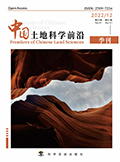

国土空间是对国家主权管理地域内一切自然资源、社会经济资源所组成的物质实体空间的总称, 是一个国家及其居民赖以生存、生活、生产的物质环境基础。对国土空间进行统筹规划, 从而实现有效保护、高效利用、永续发展, 既是满足人们对美好生活向往与高质量发展的目标, 也是一个主权政府的重要责任与权力。全书共12个章节, 通过梳理分析土地资源与生态文明的内涵演变、城市与城镇化的发展, 联系结合规划思想、空间布局管控与规划建设, 总结了国土空间规划的基本原理与相关规划知识, 构建了国土空间规划体系。文章从多方面入手, 从浅到深由表及里, 从空间规划到区域发展, 从总体规划到详细规划, 都为推重城市高质量发展提指导。同时注重城乡人居环境营造与城市更新与设计规划、保护历史文化遗产, 对规划实施进行监测评估, 从而做到国土空间规划有力运作, 从而也帮助读者更好地直观理解国土空间规划的相关知识。
Territorial space refers to the physical space comprising all natural, social and economic resources within a nation’s sovereign territory. It forms the material foundation on which a country and its people depend for survive, livelihood and development. Coordinated planning of territorial space aims to ensure effective protection, efficient utilization, and sustainable development. It not only fulfills people's aspirations for a better life and high-quality growth, but also represents a key responsibility and authority of a sovereign government. The book consists of 12 chapters. It reviews the conceptual evolution of land resources and ecological civilization, examines the development of cities and urbanization, and integrates planning theories, spatial layout control, and implementation practices. It summarizes the fundamental principles and knowledge system of territorial spatial planning and constructs a comprehensive planning framework. The book approaches the topic from multiple dimensions, progressing from superficial to in-depth analysis, covering spatial planning to regional development, and addressing both master planning and detailed planning—all aimed at providing guidance for promoting high-quality urban development. At the same time, it also emphasizes the creation of livable urban and rural environments, urban renewal and design, the preservation of historical and cultural heritage, as well as monitoring and evaluating planning implementation. These efforts aim to ensure the effective functioning of territorial spatial planning and help readers gain a more intuitive and comprehensive understanding of the subject.